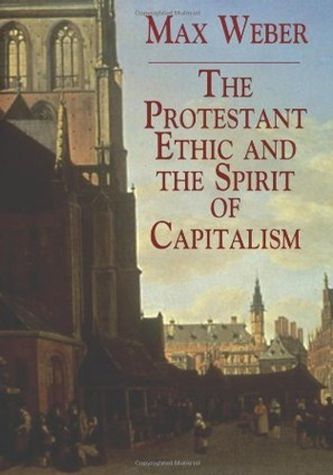
The Protestant Ethic and the Spirit of Capitalism
Max Weber
8 Key ideas
27 MINS
Economics
What if the secret to modern capitalism wasn’t just economics, but ethics shaped by faith?
Max Weber’s groundbreaking exploration of the Protestant Reformation reveals how figures like Martin Luther and John Calvin redefined work as a divine calling, turning diligence and frugality into moral imperatives. Could the rise of capitalism owe its spirit to this fusion of faith and finance, where wealth symbolized divine favor and hard work became a sacred duty?
What if the secret to modern capitalism wasn’t just economics, but ethics shaped by faith?
Max Weber’s groundbreaking exploration of the Protestant Reformation reveals how figures like Martin Luther and John Calvin redefined work as a divine calling, turning diligence and frugality into moral imperatives. Could the rise of capitalism owe its spirit to this fusion of faith and finance, where wealth symbolized divine favor and hard work became a sacred duty?


What if the secret to modern capitalism wasn’t just economics, but ethics shaped by faith?
Max Weber’s groundbreaking exploration of the Protestant Reformation reveals how figures like Martin Luther and John Calvin redefined work as a divine calling, turning diligence and frugality into moral imperatives. Could the rise of capitalism owe its spirit to this fusion of faith and finance, where wealth symbolized divine favor and hard work became a sacred duty?
Key Ideas
Read | Listen - Full summary
About Author
Max Weber was a renowned German sociologist, philosopher, and political economist, born in 1864. He is widely recognized for his seminal work, "The Protestant Ethic and the Spirit of Capitalism," published in 1905, where he explores the relationship between Protestantism and the development of capitalism. Weber's analysis of the impact of religious ethics on economic behavior and societal structures has had a profound influence on sociological theory. His work laid the foundation for understanding the interplay between culture, economics, and social change.
Learn Key Ideas from 9000+
non-fiction books in 15min.



